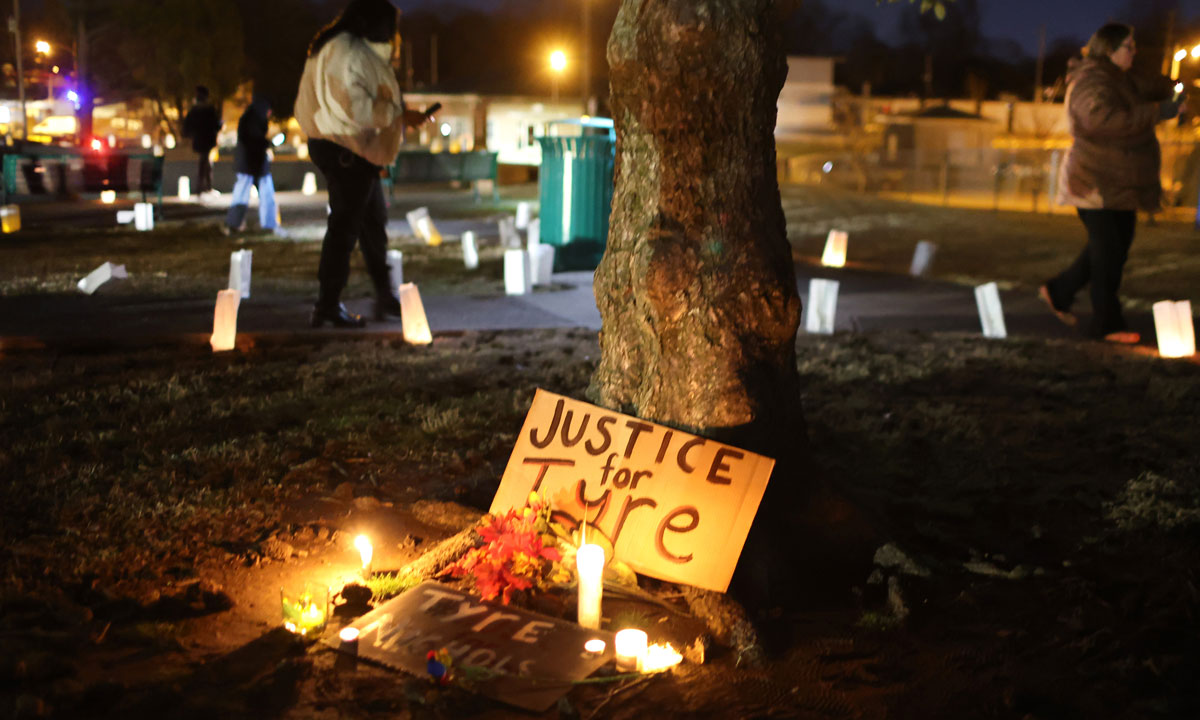To End Racial Violence, Start by Talking with Little Kids — at Home
Grant-Thomas & Giraud: The question isn’t whether kids learn about race early. It’s whether they take their cues from caring, informed adults.

Get stories like this delivered straight to your inbox. Sign up for The 74 Newsletter
On Jan. 27, Memphis officials released video recordings of five police officers severely beating an unarmed Black man. Tyre Nichols died three days later. Within days of the video releases, numerous outlets posted articles offering parents, teachers and other caregivers advice about how to talk to children about that incident and police brutality, more generally. Such articles are now part of the standard pattern and public practice around high-profile police atrocities.
What these pieces have in common is that they’re meant to guide conversations after a tragedy. But there is also a lot caregivers and educators can do to reduce the need for these conversations by making incidents of police brutality rare rather than routine. While helping children process their emotions and make developmentally appropriate sense of what happens in the immediate aftermath is important work, truly disrupting the soul-numbing routine of racialized violence means bringing the struggle home — in three ways.
First, engage children’s racial learning early — the earlier, the better
Many adults, especially white caregivers to white children, believe that youngsters are racial innocents — naïve about race, fragile with respect to its hard realities and unable to grasp its complexities. The average adult believes that a first conversation about race should occur about the time a child turns 5. Why talk about race with kids who are otherwise cheerfully unaware of or indifferent to it? Why stress them out if they won’t understand it anyway?
The truth is that infants, toddlers and preschoolers learn about race whether or not the adults around them believe it and participate intentionally in that learning. Developmental studies show that by age 5, children begin to adopt many of the same implicit racial attitudes held by adults. Few recognize themselves in the actions of the officers who murdered Nichols. But it’s in the unremarkable routines of homes, schools and communities that the ugliness expressed in racialized violence can take root in the culture. The question isn’t whether children are learning about race at an early age. It’s the degree to which they take their cues from caring, informed adults who talk about race honestly while knowing that showing is at least as important as telling.
Second, make the challenge personal
Whether as parents, grandparents, teachers, counselors, coaches, pediatricians or in another caregiving role, most adults play a meaningful role in the life of at least one child. As such, the challenge is not only to provide children with information that will shape their attitudes, values and beliefs about race, but also to guide them in processing information from other sources: family and friends, peers, books and movies, teachers, neighborhoods and communities. The racial messages children and all of us receive are constant, usually implicit rather than explicit and often confusing and contradictory.
What does it mean to do the work of socializing children conscientiously in this context?
For starters, it means adults must try to be brave learners by taking an active approach to their own learning and modeling that approach with the children in their lives. Whatever their racial identities, adults have to explore their own experiences and honestly examine their own beliefs and behaviors around race. You don’t have to be an expert to talk with children about race and related topics. They don’t need grownups to have all the answers; they need grownups to ask them questions and listen to their answers, to be willing to say “I don’t know” and try to educate themselves when they have more to learn. It is also important to be steadfast in this work by making clear to children that their curiosity and observations about race are always welcome. Inevitably, adults will make mistakes; do not allow those mistakes to be paralyzing. The point is to learn more and do better.
Third, look for the helpers
No one has to do this work alone. In areas from parenting and preK-12 education to children’s media and the health professions, individuals and groups are creating great tools and resources to help caregivers working to raise children who are thoughtful, informed and brave about race. Our own organization, EmbraceRace, is one of many doing this work, offering everything from tips by child psychologists on talking to your children about racial injustice to first-hand experiences of parents who are trying to have these conversations with their own kids.
Ultimately, the work of ending police brutality against Black people and people of color, and more broadly creating a society marked by authentic multiracial belonging, begins in our homes, schools, and communities with our children’s hearts and minds. President Barack Obama once observed that “every generation has the opportunity to remake the world.” What skills, knowledge and convictions about race will the current generation of children bring to their world-remaking work tomorrow? As parents and guardians, aunties, uncles and grandparents, educators, social workers and community members, we all have vital parts to play in shaping the answer to that question.
Get stories like these delivered straight to your inbox. Sign up for The 74 Newsletter

;)

